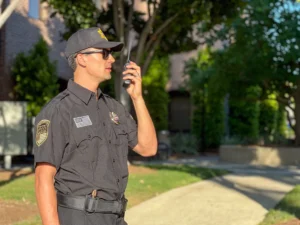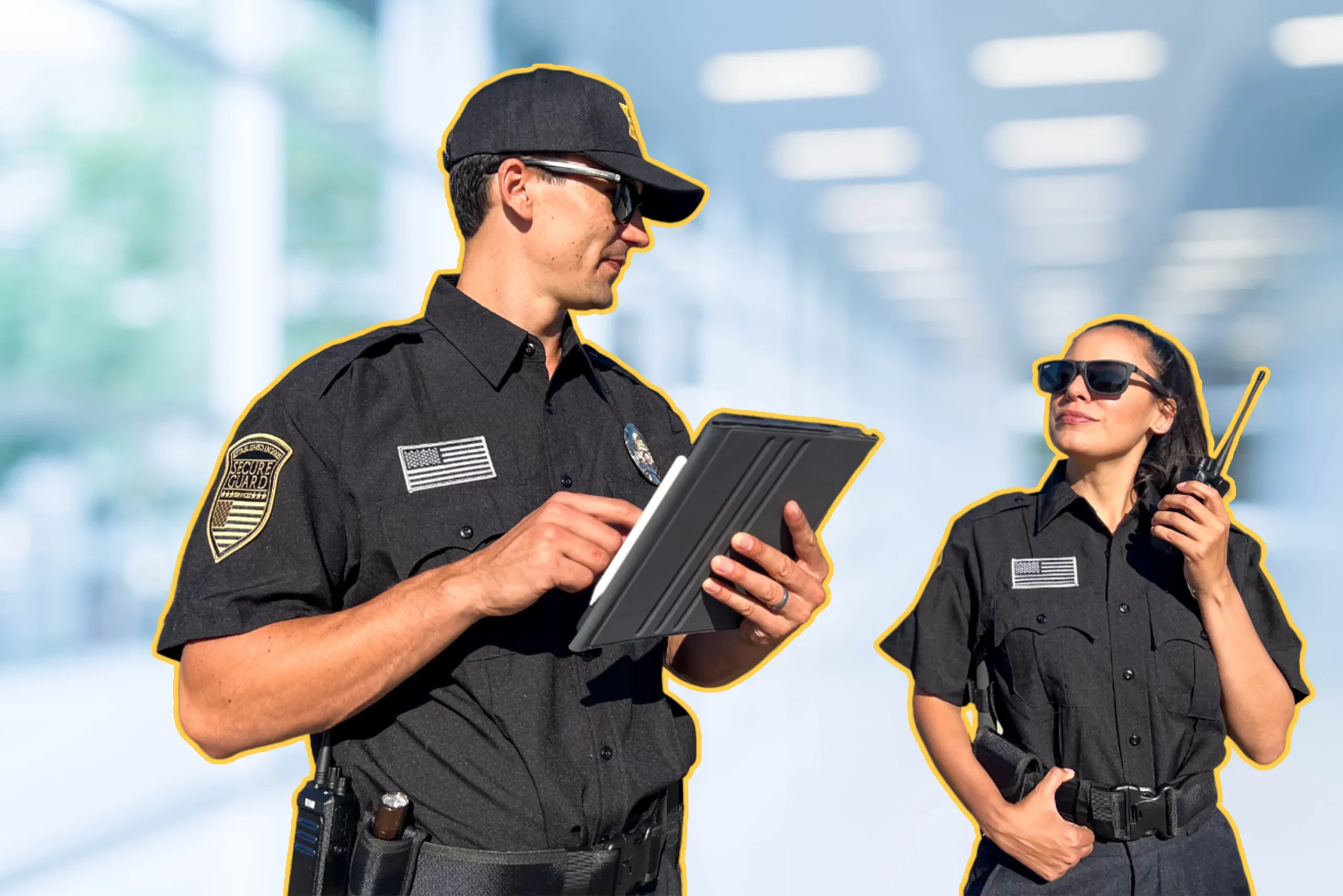Security is a paramount concern in today’s world, and the individuals responsible for maintaining it often fall into two primary categories: security agents and security guards. While these terms are sometimes used interchangeably, they represent distinct roles with unique responsibilities and characteristics.
I. Introduction
In the realm of security, the roles of security agents and security guards are pivotal. These professionals play a crucial role in safeguarding individuals, property, and assets. Let’s delve into the disparities that define these roles and their significance in the security landscape.
II. Roles and Responsibilities
A. Security Agent Duties
Security agents, often associated with private security firms, undertake specialized tasks such as risk assessment, surveillance, and protection of high-profile individuals. Their focus extends beyond conventional security, involving intricate strategies to preempt and counter potential threats.
B. Security Guard Duties
On the other hand, security guards are generally associated with more traditional security roles. They may be responsible for patrolling designated areas, monitoring surveillance cameras, and ensuring the overall safety of a premises.

III. Training and Certification
A. Requirements for Becoming a Security Agent
Becoming a security agent typically requires advanced training, including courses in risk management, emergency response, and conflict resolution. Additionally, obtaining relevant certifications is often mandatory.
B. Requirements for Becoming a Security Guard
Security guards, while still requiring training, may not need the same level of specialization as security agents. Basic security training and a valid license are commonly sufficient.
IV. Skill Set
A. Skills Needed for a Security Agent
Security agents must possess a diverse skill set, including excellent communication, quick decision-making, and the ability to handle high-pressure situations calmly.
B. Skills Required for a Security Guard
Security guards, while also needing strong communication skills, may focus more on observation, reporting, and basic conflict resolution.
V. Working Environments
A. Where Security Agents Typically Work
Security agents often find themselves in dynamic environments, such as providing security for VIPs, corporate entities, or high-value assets.
B. Common Work Settings for Security Guards
Security guards are commonly found in various settings, including retail establishments, residential areas, and public spaces.
VI. Uniforms and Equipment
A. Attire for Security Agents
Security agents may adopt a more formal or business-like attire, depending on their client’s needs, and are often equipped with communication devices.
B. Uniforms and Gear for Security Guards
Security guards typically wear standardized uniforms and may carry basic security equipment such as flashlights, batons, and communication radios.
VII. Legal Powers
A. Authority of Security Agents
Security agents may have specific legal authorities, such as making arrests or detaining individuals, depending on the jurisdiction and nature of their work.
B. Authority of Security Guards
Security guards usually have limited legal powers and may be restricted to detaining individuals until law enforcement arrives.
VIII. Differences in Pay
A. Average Salaries for Security Agents
Due to their specialized roles, security agents often command higher salaries compared to security guards, reflecting the additional skills and responsibilities involved.
B. Average Wages for Security Guards
Security guards generally earn competitive but comparatively lower wages, reflective of the less specialized nature of their roles.
IX. Advancement Opportunities
A. Career Growth for Security Agents
Security agents may have opportunities for career advancement into managerial or specialized security consulting roles.
B. Career Progression for Security Guards
Security guards may progress to supervisory roles within their organization or explore opportunities in related fields.
X. Challenges Faced
A. Difficulties Encountered by Security Agents
Security agents may face challenges related to the high-stakes nature of their work, including potential threats to their personal safety.
B. Challenges Faced by Security Guards
Security guards often encounter challenges related to routine tasks, such as dealing with unruly individuals or handling minor security breaches.
XI. Public Perception
A. How Security Agents Are Perceived
Security agents are often viewed with a sense of professionalism and capability due to their specialized training and responsibilities.
B. Public Opinion on Security Guards
Security guards may be perceived as approachable and essential but may not command the same level of professional regard as security agents.
XII. Collaboration with Law Enforcement
A. Relationship Between Security Agents and Police
Security agents may collaborate closely with law enforcement agencies, sharing information and coordinating efforts in complex security scenarios.
B. Collaboration Between Security Guards and Law Enforcement
Security guards often act as the first line of defense and may collaborate with law enforcement by reporting incidents and providing initial assistance.
XIII. Technology Integration
A. Use of Technology in Security Agent Roles
Security agents leverage advanced technology, including surveillance systems and threat detection tools, to enhance their capabilities.
B. Technological Advancements in Security Guard Services
Security guards benefit from technology such as CCTV cameras and communication devices, improving their efficiency in monitoring and responding to incidents.
XIV. Industry Trends
A. Current Trends in Security Agent Services
Security agents are increasingly involved in cybersecurity, reflecting the growing importance of digital security in the modern era.
B. Evolving Trends in Security Guard Responsibilities
Security guards are adopting more proactive approaches, such as community engagement and preventive measures, as part of their evolving responsibilities.
XV. Conclusion
In conclusion, while both security agents and security guards play crucial roles in maintaining safety, their differences lie in the nature of their duties, training requirements, and legal authorities. Understanding these distinctions is essential for individuals considering a career in the security sector or those seeking security services for their businesses or events.
FAQs
- Are security agents and security guards the same?
- No, they have distinct roles and responsibilities, with security agents often handling specialized tasks.
- What kind of training do security agents undergo?
- Security agents undergo advanced training in risk management, emergency response, and conflict resolution.
- Do security guards have legal powers?
- Security guards usually have limited legal powers, often restricted to detaining individuals until law enforcement arrives.
- How does the public perceive security agents and security guards?
- Security agents are often viewed with professionalism, while security guards are seen as approachable and essential.
- What are the industry trends in security services?
- Security agents are increasingly involved in cybersecurity, and security guards are adopting more proactive measures, reflecting evolving trends in the industry.


